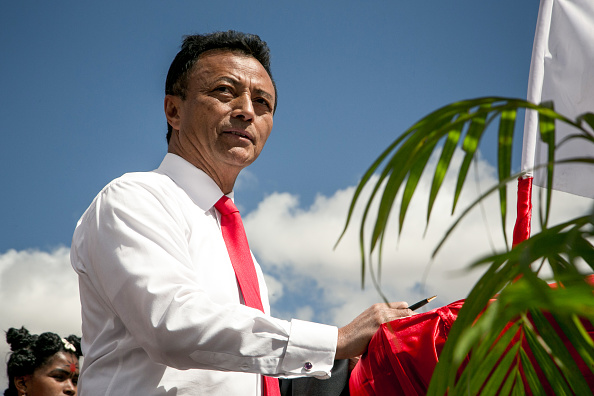
Madagascar presidential hopeful heads to court over poll “irregularities”

Madagascar presidential hopeful Marc Ravalomanana has gone to court to protest the conduct of presidential polls to “correct irregularities,” sources close to his campaign said on Tuesday.
Neither Ravalomanana nor his arch-rival Andry Rajoelina won the 50% of votes required for a first-round victory following the November 7 election, according to results published on Saturday. The run-off vote is scheduled for December 19.
“We’re not seeking a victory in the first round of voting, just to correct irregularities in the results,” said a member of Ravalomanana’s legal team who requested anonymity.
More than 50 complaints, concerning voting, counting and tallying, have been submitted to the Indian Ocean Island nation’s High Constitutional Court.
Rajoelina was on 39.19% and Ravalomanana on 35.29%, according to the official results of the first-round vote.
Hery Rajaonarimampianina, who is seeking to hold on to power, secured only 8.84% of the vote. Turnout was 54.3%.
All three leading candidates, from a total of 36, have alleged fraud and malpractice by election authorities, and the result is now subject to a legal battle.
Observers from the African Union, EU and Southern African Development Community (SADC) bloc have all said the poll was conducted fairly and largely without incident.
On Monday, Rajoelina accused election officials of “manipulation” after the results showed him short of the absolute majority needed to avoid a second round run-off vote.
He has indicated that he would also approach the courts to challenge the results.
The election commission issued a 500-word statement in response to Rajoelina’s allegations insisting that it had “ensured the transparency of the electoral system at all times”.
Madagascar is one of the world’s poorest countries, according to World Bank data, with almost four in five people living in grinding poverty.
It also has a long history of political instability and coups.






